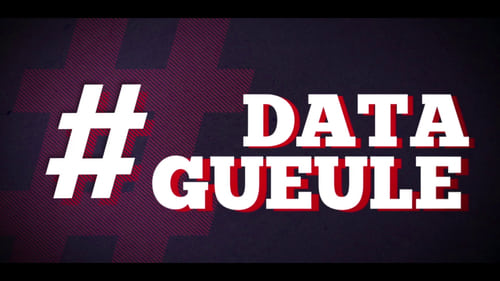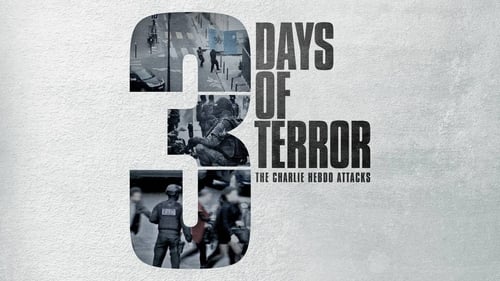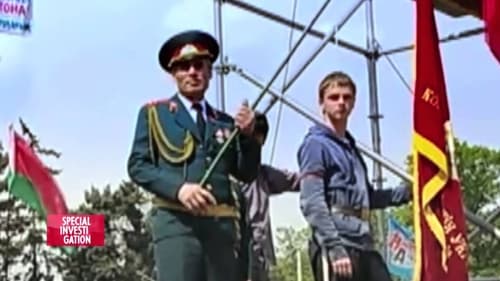
Producer
Este documentário de crime real examina o estranho caso de Carlos Ghosn, um empresário de sucesso que se tornou um fugitivo internacional.

Director
There is what you see, what some people want you to see, and what you don't see. Never has France known such a concentration of private media. A few billionaire industrialists, owners of televisions, radios, newspapers use their media to defend their private interests. To the detriment of information of public interest. By hiding what is essential, by magnifying what is accessory, these media shape, orientate, hysterize for some the debate. With the complicity of certain political leaders, who willingly accept it. Mediapart and Premières Lignes tell you what goes on behind the scenes in the media.

Production Executive

Writer

Director
In the last 10 years, the landscape of the pharmaceutical industry has changed. A handful of multinationals control the manufacture of most of the drugs.

Producer
Inspired by the mythology of the International Brigades of the Spanish Civil War, over 300 foreign volunteers chose to give up their comfortable lives and go fight ISIS in Raqqa. We filmed them there, fly-on-the-wall style, fighting, talking, laughing, being attacked by suicide bombs and sniper fire. We were with them until Raqqa was freed. And then we followed them back home – changed forever. Every night, between July and October 2017, young men with no previous military experience pushed through the most dangerous streets of the world. They conquered Raqqa, block after block. They met death and violence. And eventually, along with the Kurdish and Arab forces of the Syrian Democratic Forces, they liberated Raqqa and ended the reign of the most murderous cult of the XXI century. Some of them went back home. We were there when they told their story to their families. This is the untold story of the young Westerners who left everything behind to fight ISIS.

Producer
We're at the beginning of an artificial intelligence revolution that promises to change everything. Already, virtual assistants like Siri and Alexa have become a part of our daily life. But in order to run their applications, digital giants like Amazon, Google and Facebook, employ an army of invisible labour. These are disposable workers, paid as little as 10 cents an hour to feed information into computer systems. They receive neither benefits nor contract and normal labor law doesn't apply to them. Whilst millions of men and women are training artificial intelligence for next to nothing, others are being hired and hide out of sight to clean up social networks. We went undercover as one of these web cleaners, working as a content moderator for Facebook. To meet the workers hiding behind your screen, we're taking you to the factory of the future, one of the digital economy's best kept secrets.

Director
How the American coffee chain, now global, has conquered the urban middle class. This investigation on three continents reveals the carefully hidden face of the brand.

Producer
A year ago, thanks to the precious support of 7819 people, we started a journey in democracy (s). Over the weeks and months, according to meetings, exchanges and readings, we questioned this strange word: democracy. In France but also in Greece, Iceland, Belgium and Spain, we met citizens who are working to insert more democracy in their daily lives. Here is, in 90 minutes, the result of this adventure to try to grasp what this word contains.

Producer

Producer
For the past 12 years, journalist Paul Moreira has travelled extensively in Iraq. In this film, he goes in search of the men he filmed back in 2003 at the very beginning of the American occupation. Through their stories, and by tracing the roots of ISIS to the arrival of Abu Mousab Al-Zarqawi and America's handling of the resistance, he tells the story of how Iraq became such a fractured nation.

Producer
For decades, their factories secretly dumped toxic products into rivers, groundwater systems and soil. This pollution affected thousands, causing disabilities, cancers and death.

Executive Producer
In November 2015, when gunmen attacked Paris, France declared war on the Islamic State. But that war - and France's 'year of terror' - began a year ago with the attack on satirical magazine Charlie Hebdo. With unprecedented access to the French authorities and previously unseen footage, five-time Bafta-winning director Dan Reed reveals the untold story of the massacre and of the first Islamic State strike in Paris at a kosher grocery store. Key witnesses, police officers and survivors - many speaking for the first time - piece together the dramatic attacks and the unprecedented manhunt that gripped the world for three extraordinary and terrifying days.

Producer
In November 2015, when gunmen attacked Paris, France declared war on the Islamic State. But that war - and France's 'year of terror' - began a year ago with the attack on satirical magazine Charlie Hebdo. With unprecedented access to the French authorities and previously unseen footage, five-time Bafta-winning director Dan Reed reveals the untold story of the massacre and of the first Islamic State strike in Paris at a kosher grocery store. Key witnesses, police officers and survivors - many speaking for the first time - piece together the dramatic attacks and the unprecedented manhunt that gripped the world for three extraordinary and terrifying days.

Writer
In November 2015, when gunmen attacked Paris, France declared war on the Islamic State. But that war - and France's 'year of terror' - began a year ago with the attack on satirical magazine Charlie Hebdo. With unprecedented access to the French authorities and previously unseen footage, five-time Bafta-winning director Dan Reed reveals the untold story of the massacre and of the first Islamic State strike in Paris at a kosher grocery store. Key witnesses, police officers and survivors - many speaking for the first time - piece together the dramatic attacks and the unprecedented manhunt that gripped the world for three extraordinary and terrifying days.

Producer
Até agora, a Europa não sabe tudo o que realmente aconteceu e continua a acontecer em Kiev e em todo o país como um todo. Em vez deste filme representantes da Embaixada da Ucrânia em França têm oferecido pessoas da TV para mostrar na TV a sua versão dos acontecimentos, que é um fragmentos reunidos às pressas de propaganda estereotipada, que a maioria dos canais de televisão ucraniana é recheada por. Estréia de documentário dirigido por Paul Moreira, foi realizada a 1 de fevereiro de 2016. O enredo conta a história dos trágicos acontecimentos que tiveram lugar em Odessa: o fogo da casa dos sindicatos e a queima de cerca de 40 pessoas (de acordo com números oficiais) e 300 (fontes não oficiais). Diretor, falando sobre as filmagens do filme disse que seu objetivo era mostrar ao mundo a história sangrenta da Ucrânia e Odessa em particular: "no coração da Europa, as pessoas são queimadas vivas, e todos estão em silêncio sobre isso."

Editorial Manager
What we now call an IQ test was originally developed by Alfred Binet at the start of the 20th century as a way to measure developmental delays in schoolchildren. But with the eugenics craze at its peak, Binet's concept was soon appropriated and exploited by those who wished to guarantee the ethnic purity of their society. This program looks at the history of IQ assessment, from Ellis Island evaluations to William Shockley's racist declarations in the 1970s, and reveals how social policies were influenced by the idea that intelligence is set at birth. In addition, Charles Murray, co-author of The Bell Curve: Intelligence and Class Structure in American Life, defends his views.













